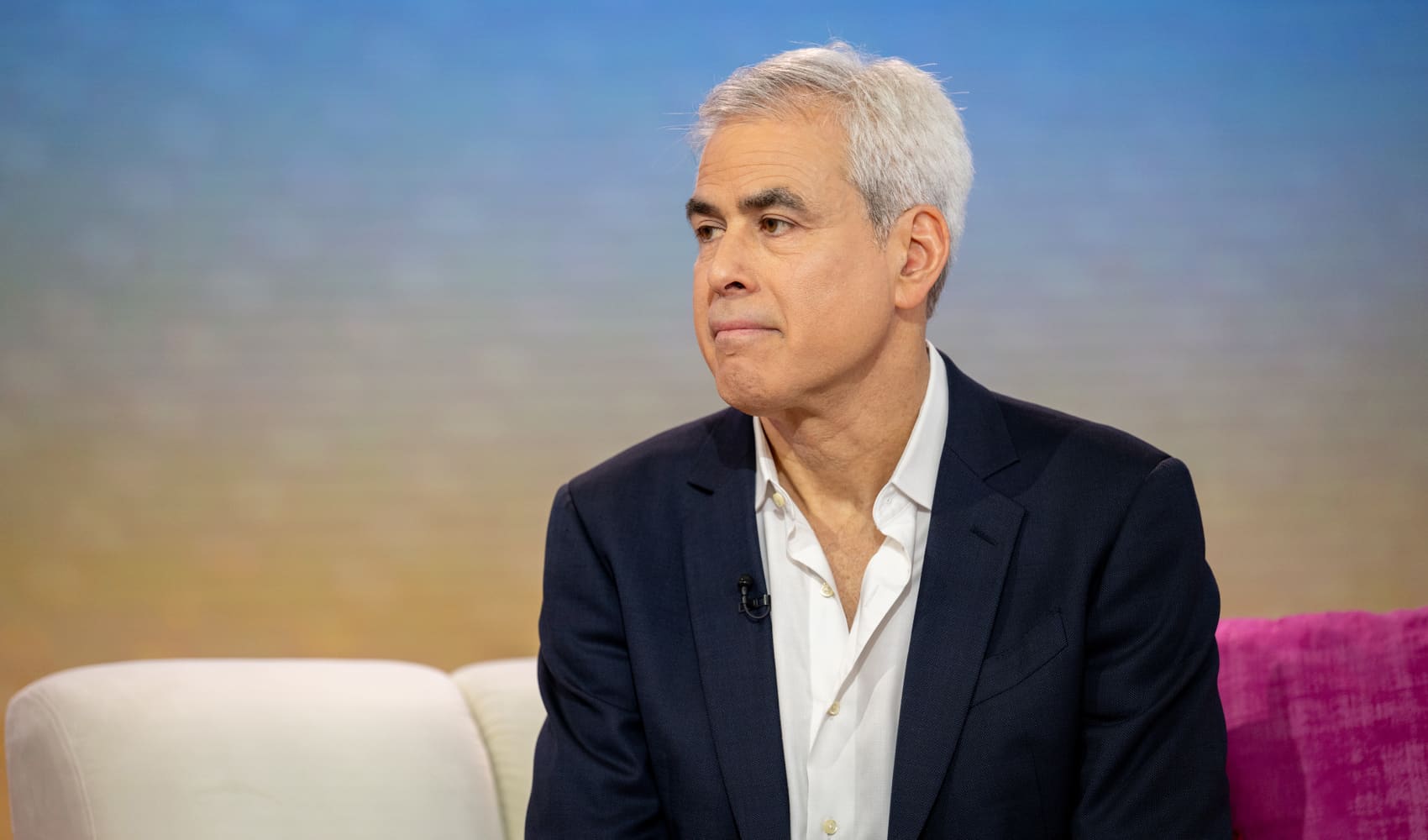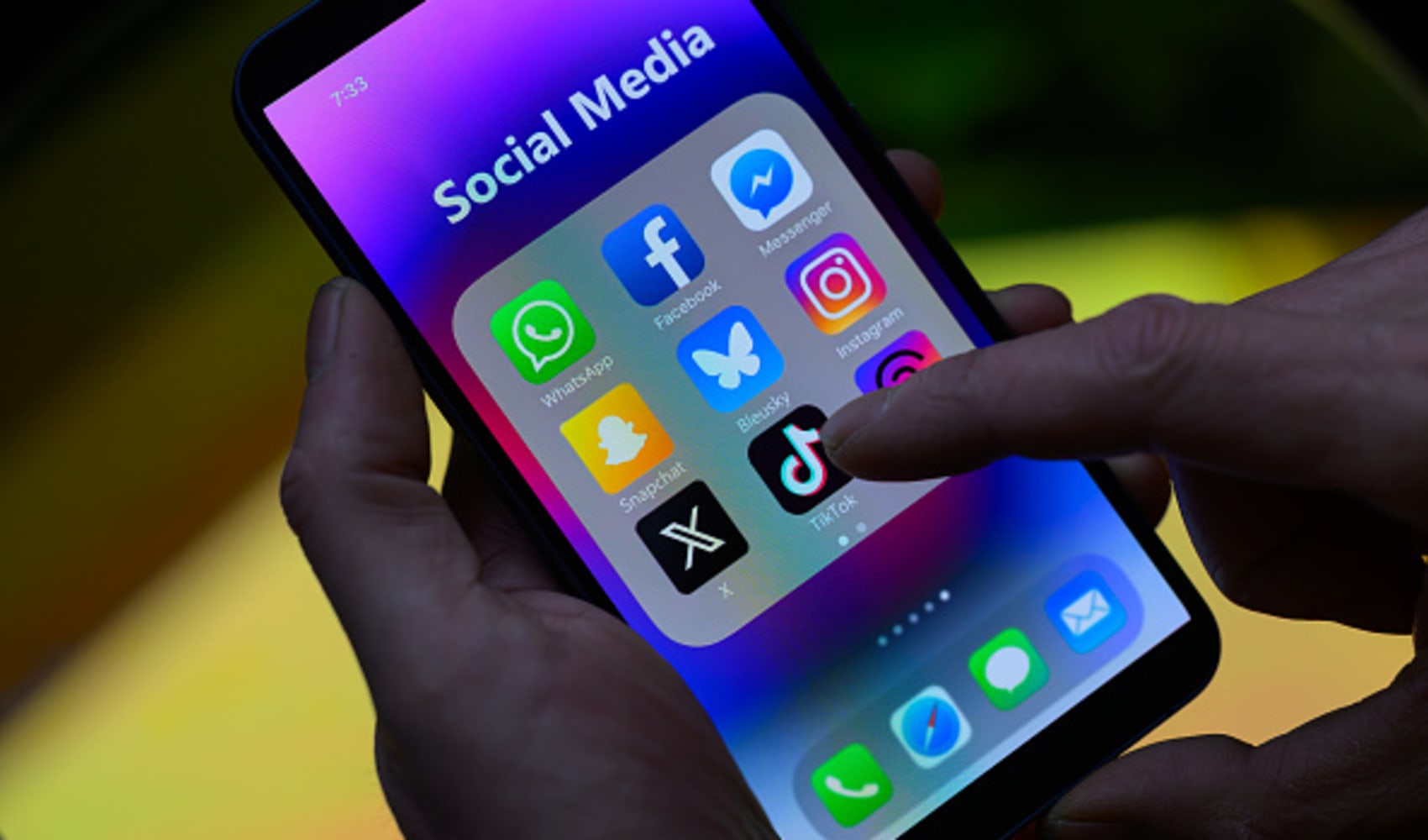Crucial Focus Skill: Master by 25, Ivy League Expert Says
Unlock Your Potential: The Crucial Soft Skill to Master by 25, According to Ivy League Psychologist
Introduction: Are You Missing This Essential Ingredient for Success?
Imagine a world where you can effortlessly navigate challenges, build strong relationships, and achieve your goals with unwavering focus. Sounds pretty great, right? Well, according to Jonathan Haidt, a renowned social psychologist and professor at New York University, there's a critical soft skill you need to cultivate by the time you're 25 to make this a reality: the ability to focus. He argues that the constant distractions of the digital age, particularly social media and smartphones, are eroding our capacity to concentrate, and the consequences could be dire. So, are you ready to dive in and discover how to reclaim your focus and unlock your full potential?
The Digital Distraction: A Generation Losing Focus
We live in an era of unparalleled connectivity, but this hyper-connectivity comes at a cost. Haidt points to alarming statistics: Teens spend an average of 8 hours and 39 minutes per day glued to screens. Imagine spending nearly a third of your day bombarded with notifications and digital stimuli! And, as reported in Common Sense Media's 2023 "Constant Companion" report, teenagers receive almost 240 notifications every day, checking their phones over 100 times. This constant influx of information overwhelms our brains and makes it increasingly difficult to maintain focus. It's like trying to read a book in the middle of a crowded concert – nearly impossible!
Why Focus Matters: The Foundation of Success
Focus: The Cornerstone of Achievement
Why is focus so crucial? Simple: focus is the bedrock upon which all significant achievements are built. Think about it. Whether you're striving for academic excellence, building a successful career, nurturing meaningful relationships, or mastering a new skill, focus is the key ingredient. Without it, you're like a ship without a rudder, tossed about by the waves of distraction.
Focus vs. Multitasking: The Myth of Productivity
We've been led to believe that multitasking is a valuable skill, but the truth is, it's a productivity killer. When we try to juggle multiple tasks simultaneously, our brains switch back and forth between them, resulting in reduced efficiency and increased errors. True focus involves dedicating your full attention to one task at a time, allowing you to delve deeper, think more creatively, and produce higher-quality work.
The Dangers of Distraction: A Deeper Look
Reduced Cognitive Capacity
Constant distractions not only hinder our ability to concentrate but also diminish our cognitive capacity. When our brains are constantly bombarded with information, they have less energy and resources available for critical thinking, problem-solving, and creative endeavors. It's like trying to power a high-performance sports car with low-grade fuel – it simply won't perform at its best.
Impaired Emotional Regulation
Believe it or not, a lack of focus can also impact our emotional well-being. When we're constantly distracted, we become more reactive to external stimuli, making us more prone to anxiety, stress, and irritability. Developing the ability to focus helps us cultivate a sense of inner calm and emotional resilience.
Haidt's Urgent Warning: Restoring Your Brain
Haidt's message is clear and direct: "It is urgent that you restore your brain." He emphasizes the need to actively combat the detrimental effects of excessive screen time and cultivate habits that promote focus. He suggests that young adults, especially those who've grown up immersed in the digital world, need to consciously rewire their brains to regain the ability to concentrate.
Practical Strategies for Cultivating Focus
Digital Detox: Reclaiming Your Time
One of the most effective ways to restore your focus is to implement a digital detox. This involves setting aside specific periods of time each day or week to disconnect from all electronic devices. It might sound daunting, but trust me, the benefits are worth it. Start small, perhaps with 30 minutes a day, and gradually increase the duration as you become more comfortable.
Mindfulness Meditation: Training Your Attention
Mindfulness meditation is a powerful tool for training your attention and enhancing your ability to focus. By practicing regular meditation, you can learn to observe your thoughts and emotions without judgment, allowing you to stay present in the moment and resist distractions. Even just a few minutes of daily meditation can make a significant difference.
Time Blocking: Structuring Your Day for Optimal Focus
Time blocking is a technique that involves scheduling specific blocks of time for different tasks throughout the day. By allocating dedicated time slots for focused work, you can minimize distractions and maximize productivity. Be sure to schedule breaks in between work blocks to prevent burnout and maintain optimal focus.
Creating a Focused Environment
Your physical environment can have a significant impact on your ability to concentrate. Create a dedicated workspace that is free from clutter and distractions. Minimize noise, turn off notifications, and let others know that you need uninterrupted time to focus. Think of your workspace as your sanctuary for concentration.
Prioritizing Sleep and Nutrition
Adequate sleep and a healthy diet are essential for optimal brain function and focus. When you're sleep-deprived or poorly nourished, your cognitive abilities suffer, making it much harder to concentrate. Aim for at least 7-8 hours of quality sleep each night and nourish your body with a balanced diet rich in fruits, vegetables, and whole grains.
The Long-Term Benefits of Cultivating Focus
Enhanced Productivity and Achievement
The ability to focus directly translates to increased productivity and achievement in all areas of life. When you can concentrate your attention on a single task, you're able to complete it more efficiently and effectively, leading to greater success in your endeavors.
Improved Relationships
Focus isn't just about work and academic performance; it also plays a crucial role in building strong relationships. When you're truly present and attentive during conversations, you can connect with others on a deeper level, fostering stronger bonds and more meaningful interactions.
Increased Creativity and Innovation
Focus can also unlock your creative potential. When you're able to quiet the noise and distractions in your mind, you create space for new ideas to emerge. Deep, focused work allows you to explore complex problems and come up with innovative solutions.
Greater Sense of Well-Being
Ultimately, cultivating focus leads to a greater sense of well-being. When you're in control of your attention, you feel more grounded, centered, and at peace. You're less reactive to external stimuli and more resilient to stress and anxiety.
Beyond 25: It's Never Too Late to Learn
While Haidt emphasizes the importance of developing this skill by 25, it's never too late to start. Whether you're 25, 35, or 55, you can still train your brain to focus. The key is to be patient, persistent, and committed to implementing the strategies outlined above.
Conclusion: Reclaim Your Focus, Reclaim Your Life
In conclusion, the ability to focus is a crucial soft skill that is essential for success in the modern world. The constant distractions of the digital age are eroding our capacity to concentrate, but by implementing strategies such as digital detoxes, mindfulness meditation, time blocking, and creating a focused environment, we can reclaim our attention and unlock our full potential. Remember, it's never too late to start. Take control of your focus, and you'll take control of your life.
Frequently Asked Questions
Q1: What if I feel like I'm completely addicted to my phone? Is there hope?
Absolutely! Phone addiction is a real issue, but it's not insurmountable. Start small by setting daily limits on your screen time. Use apps to track your usage and gradually reduce it. Replace phone time with activities you enjoy, like reading, exercising, or spending time with loved ones. Remember, progress, not perfection, is the goal!
Q2: Mindfulness meditation sounds intimidating. Do I have to sit in silence for hours?
Not at all! You can start with just 5 minutes of guided meditation per day. There are plenty of free apps and online resources that can guide you. The key is to find a method that resonates with you and be consistent with your practice.
Q3: I work in a fast-paced environment where multitasking is expected. How can I focus?
Even in a demanding work environment, you can find ways to prioritize focus. Communicate with your colleagues and managers about your need for uninterrupted time. Use noise-canceling headphones to minimize distractions, and break down large tasks into smaller, more manageable chunks. Consider using the Pomodoro Technique (25 minutes of focused work followed by a 5-minute break) to stay on track.
Q4: What are some alternative activities I can do instead of scrolling through social media?
The possibilities are endless! Try reading a book, going for a walk in nature, learning a new skill (like playing an instrument or painting), spending time with family and friends, volunteering in your community, or engaging in a hobby that you enjoy. The key is to find activities that are engaging and fulfilling, and that help you disconnect from the digital world.
Q5: How can I help my children develop focus in a digital world?
Lead by example! Set healthy boundaries around your own screen time and encourage your children to do the same. Create tech-free zones in your home, such as the dinner table or bedrooms. Encourage outdoor activities, hobbies, and social interactions that don't involve screens. Teach them about the importance of focus and the benefits of disconnecting from technology.

